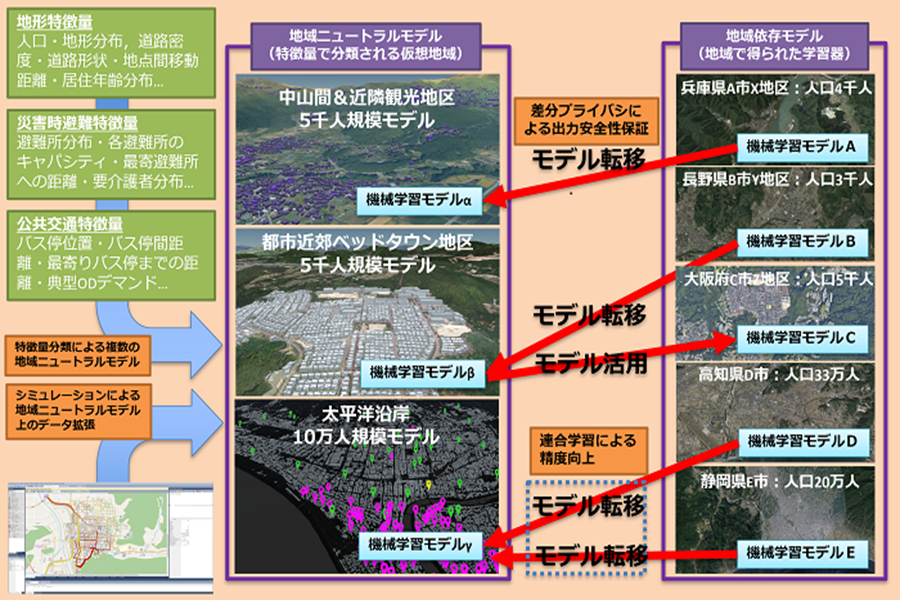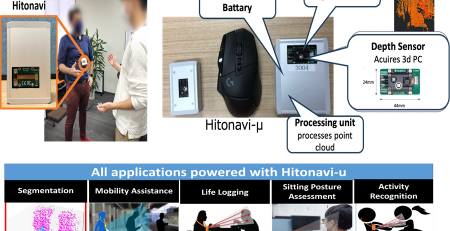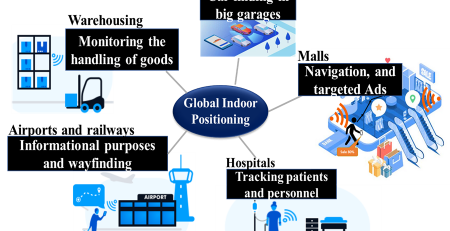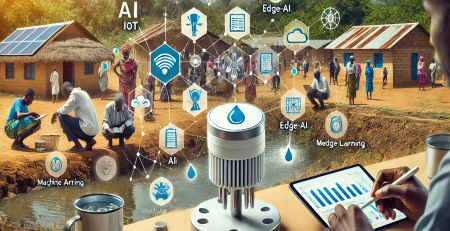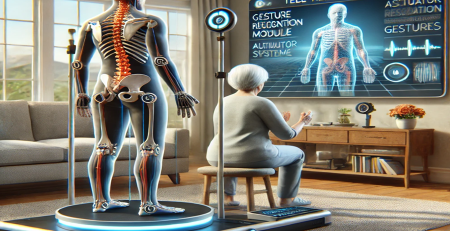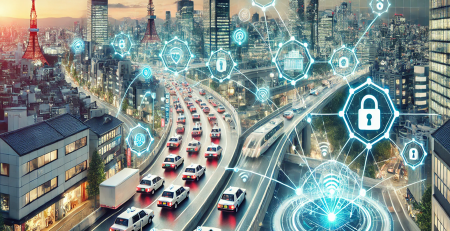Digitalizing Knowledge of Regional Communities
The concept of “Smart City” initially envisioned the enhancement of urban environments and the construction of futuristic cities. However, the Smart City concept promoted by Society 5.0 and Super City initiatives fundamentally focuses on revitalizing and coordinating local communities. In the Smart City public-private partnership platform, desirable forms of inter-regional collaboration and the necessity of data utilization between cities are emphasized. The introduction of Urban Operating Systems (City OS), which serves as a data collaboration infrastructure, is a key priority task to achieve this.
The City OS aggregates various sensors, cameras, administrative data, and other resources from regions, municipalities, and the private sector. By facilitating service and data collaboration, it serves as a foundation to realize diverse applications such as disaster prevention, safety, security, and transportation. Noteworthy platforms in this context include FIWARE and the Osaka Wide-Area Data Collaboration Platform (ORDEN).
The current Urban Operating System (OS) is designed with the collaboration of local governments, companies, research institutions, etc., in mind, particularly in fields such as energy, transportation, healthcare, finance, telecommunications, and education. It serves as a foundation that facilitates the accumulation of vast amounts of data, enabling the construction of applications for AI analysis and utilization. Consequently, with the proliferation of Urban OS, a substantial amount of AI is expected to be generated from the extensively collected data.
Aligned with the principles of a Smart City, it is envisioned that such artificial intelligence should be leveraged beyond individual regions. In the not-too-distant future, it is hoped that local governments and communities will pool their artificial intelligence resources, fostering a collaborative approach to co-create a new society.
An important challenge in this context is privacy and security. For instance, training data for machine learning models that optimize local transportation may contain personal data such as residential locations and travel histories, making it unsuitable for straightforward sharing as a dataset. Machine learning models serve as query engines for datasets, and it is crucial to ensure the safety of outputs related to personal data.
In this research, we aim to digitize the knowledge of local communities and develop the S5 foundation software TASK/OS5 (Transformation, Adaptation, and Sharing of Knowledge for Open Society 5.0) to securely share this knowledge. We will transfer data and machine learning models with “local dependencies,” obtained in individual regions, to a secured form before sharing. By formally demonstrating, through number theory, that region-specific models or data posing risks of individual identification cannot be obtained from the secured versions, we will construct a methodology for utilizing data and models, including personal data, in a secure manner.
PI: Hirozumi Yamaguchi
My responsibility: Work Package 1 and 3.
Publications:
- Ren Ozeki, Haruki Yonekura, Hamada Rizk, Hirozumi Yamaguchi, “Balancing Privacy and Utility of Spatio-Temporal Data for Taxi-Demand Prediction,” The 24th IEEE International Conference on Mobile Data Management, IEEE MDM 2023
- Haruki Yonekura, Ren Ozeki, Hamada Rizk, Hirozumi Yamaguchi, “DEMO: STM – A Privacy-Enhanced Solution for Spatio-Temporal Trajectory Management”, The 24th IEEE International Conference on Mobile Data Management, IEEE MDM 2023
- Ren Ozeki, Haruki Yonekura, Aidana Baimbetova, Hamada Rizk, Hirozumi Yamaguchi, “POSTER: One Model Fits All: Cross-Region Taxi-Demand Forecasting,” The 31st ACM SIGSPATIAL International Conference on Advances in Geographic Information Systems (ACM SIGSPATIAL 2023)
